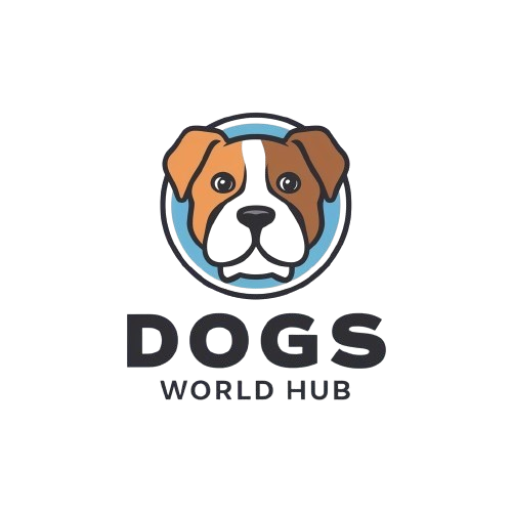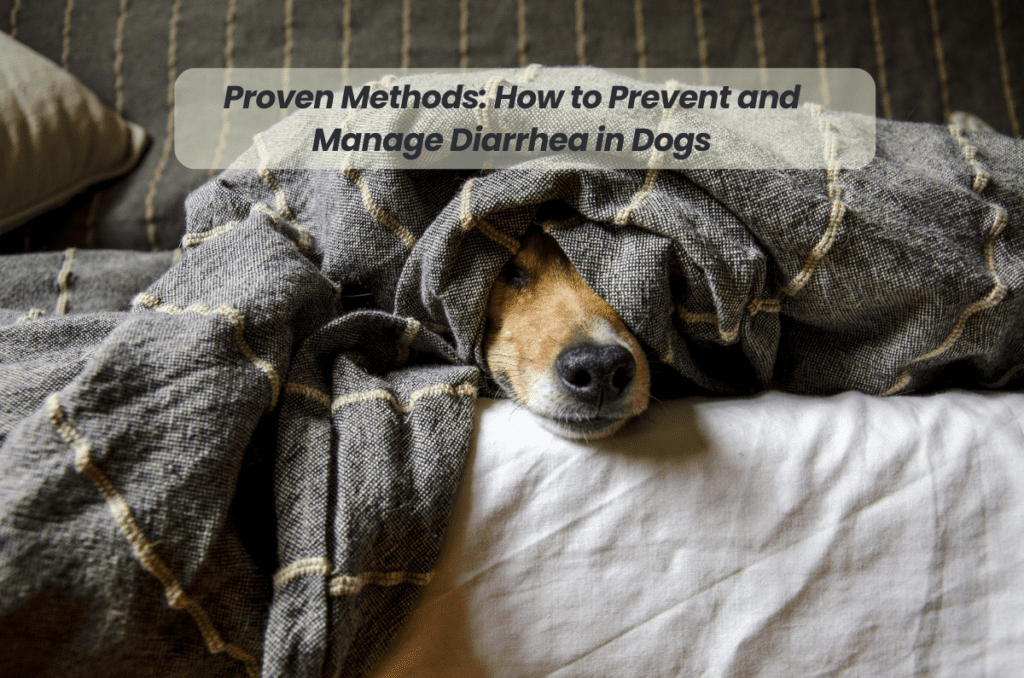As a dog owner, it is important to understand the common health issues that can affect your furry friend. Diarrhoea is one such problem that many dogs experience at some point. Diarrhea is characterized by loose, watery stools and can be caused by various factors. It is essential to understand this condition and its causes to effectively prevent and manage diarrhoea in dogs.
Diarrhea in dogs can be caused by several factors, including dietary indiscretion, food allergies, infections, parasites, and even stress. Dogs are known for their curious nature and may ingest things unsuitable for their digestive system, leading to diarrhoea. Additionally, certain foods can trigger an allergic reaction in some dogs, resulting in gastrointestinal upset. Infections like viral or bacterial gastroenteritis and parasites like worms can also cause diarrhoea. Lastly, dogs can experience stress-induced diarrhoea, especially in situations like travelling or changes in their environment.
- Causes of diarrhoea in dogs
- Symptoms of diarrhoea in dogs
- When to seek veterinary help
- Preventing diarrhoea in dogs
- Managing diarrhoea at home
- Diet and nutrition for dogs with diarrhoea
- Natural remedies for diarrhoea in dogs
- Medications and treatments for diarrhoea in dogs
- Conclusion: Taking care of your dog’s digestive health
Causes of diarrhoea in dogs
Understanding the causes of diarrhoea in dogs is crucial for effective prevention and management. One of the primary causes is dietary indiscretion, which refers to the consumption of inappropriate or spoiled food, garbage, or foreign objects. Dogs tend to explore their surroundings with their mouths, which can lead to a behavioural stomach and diarrhoea.
Food allergies can also contribute to diarrhoea in dogs. Just like humans, dogs can have allergies to certain ingredients in their food, such as grains, dairy, or specific proteins. These allergies can manifest as gastrointestinal issues, including diarrhoea. Identifying and eliminating these allergens from your dog’s diet is important.
Infections, both viral and bacterial, can cause diarrhoea in dogs. Parvovirus is the most common viral disease affecting dogs, which can lead to severe diarrhoea and dehydration. Bacterial infections like Salmonella or Campylobacter can also result in diarrhoea. It is crucial to ensure that your dog is up to date on vaccinations and practice good hygiene to minimize the risk of these infections.
Symptoms of diarrhoea in dogs
Recognizing the symptoms of diarrhoea in dogs is essential to address the issue promptly. The main symptom, of course, is loose, watery stools. However, there are other signs that you should look out for. These include increased frequency of bowel movements, urgency to defecate, straining, blood or mucus in the stool, vomiting, loss of appetite, lethargy, and dehydration.
Suppose your dog experiences any of these symptoms. In that case, monitor them closely and contact your veterinarian if diarrhoea persists for more than 24 hours or if there are additional concerning signs. Diarrhea can lead to dehydration, which can be dangerous for your dog’s overall health. Prompt intervention is crucial to prevent further complications.
When to seek veterinary help
While some cases of diarrhoea in dogs can be managed at home, there are instances when veterinary help is necessary. If your dog is experiencing severe diarrhoea, is vomiting, has bloody stools, or shows signs of dehydration such as excessive thirst, lethargy, or dry gums, it is important to seek immediate veterinary assistance.
Additionally, if your dog has pre-existing health conditions, is young or elderly, or has a compromised immune system, it is advisable to consult with your veterinarian. These factors can make your dog more susceptible to complications from diarrhoea and may require medical intervention.
Your veterinarian will conduct a thorough examination and may recommend diagnostic tests such as faecal analysis or blood work to determine the underlying cause of diarrhoea. Based on the diagnosis, they will provide appropriate treatment and guidance on managing your dog’s condition.
Also Read : How to remove dog stains
Preventing diarrhoea in dogs
Prevention is always better than cure, and the same applies to diarrhoea in dogs. You can take several measures to minimize the risk of your dog developing diarrhoea. Firstly, ensure your dog has a balanced and nutritious diet that suits their needs. High-quality dog food free from allergens can go a long way in preventing gastrointestinal issues.
Avoid giving your dog table scraps or foods known to cause digestive upset, such as fatty or spicy foods. Stick to a consistent feeding schedule and avoid sudden changes in their diet, which can disrupt their digestive system and potentially lead to diarrhoea.
Maintaining good hygiene is also crucial in preventing diarrhoea. Make sure to clean your dog’s living area, wash their food and water bowls regularly, and practice proper waste disposal. Regularly deworming your dog and keeping up with vaccinations can also help prevent infections that can cause diarrhoea.
Managing diarrhoea at home
If your dog develops mild diarrhoea, there are steps you can take to manage the condition at home. The first and most important step is to withhold food for 12 to 24 hours, allowing their digestive system to rest. However, ensure that your dog can access fresh water to prevent dehydration.
After the fasting period, gradually reintroduce small, bland meals. Boiled chicken and rice are commonly recommended during this time, as they are easy to digest and can help firm up the stool. Feed your dog small portions frequently to avoid overwhelming their stomach.
Probiotics can also be beneficial in managing diarrhoea in dogs. These supplements help restore the balance of beneficial bacteria in the gut, promoting healthy digestion. Consult with your veterinarian for the appropriate probiotic formulation for your dog.
Diet and nutrition for dogs with diarrhoea
Diet plays a crucial role in managing diarrhoea in dogs. Once your dog’s stool firms up, you can gradually transition them back to their regular diet. However, it is important to introduce regular food slowly to ensure that their digestive system can handle it.
Sometimes, your veterinarian may recommend a prescription diet specifically formulated for dogs with gastrointestinal issues. These diets are designed to be easily digestible and contain ingredients that promote a healthy gut. Follow your veterinarian’s advice regarding the appropriate diet for your dog’s condition.
It is also important to ensure that your dog can always access fresh water. Diarrhoea can lead to dehydration, so make sure your dog stays hydrated throughout their recovery.
Natural remedies for diarrhoea in dogs
In addition to dietary changes, natural remedies can help alleviate diarrhoea in dogs. One common remedy is canned pumpkin, which is rich in fibre and can help firm up the stool. Add a small amount of plain, canned pumpkin to your dog’s meals to aid digestion.
Another natural remedy is slippery elm bark, which can soothe the gastrointestinal tract and reduce inflammation. Slippery elm bark powder can be mixed with water and given to your dog orally. Consult with your veterinarian for the appropriate dosage.
Proper hydration is crucial in managing diarrhoea; electrolyte solutions can help replenish lost fluids and minerals. You can find electrolyte solutions specifically made for dogs at pet stores or consult with your veterinarian for recommendations.
Medications and treatments for diarrhoea in dogs
Sometimes, your veterinarian may prescribe medications to manage diarrhoea in dogs. These medications can help reduce inflammation, control bacterial infections, or address underlying medical conditions causing diarrhoea. A diarrhoea is to follow your veterinarian’s instructions regarding the dosage and duration of any prescribed medications.
It is worth noting that over-the-counter human medications, such as anti-diarrheal drugs, should not be given to dogs without veterinary guidance. Some of these medications can harm dogs and worsen the underlying condition.
Conclusion: Taking care of your dog’s digestive health
Diarrhea in dogs is a common health issue that can be caused by various factors. Understanding the causes, symptoms, and effective management methods is essential for every dog owner. You can minimize the risk of your dog developing diarrhoea by implementing preventive measures such as a balanced diet, good hygiene practices, and regular veterinary care. If diarrhoea does occur, closely monitor your dog and seek veterinary help if necessary. You can help your furry friend maintain optimal digestive health and overall well-being with proper care and attention.

